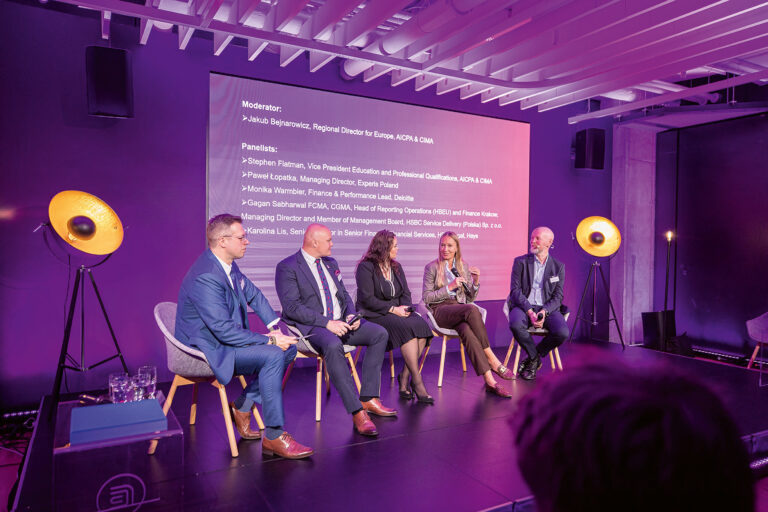Poland’s Economic Renaissance. A Golden Age in the Making?
Poland’s GDP is set to surpass the one-trillion-dollar mark this year, propelling the nation into the world’s top 20 economies. With the gap between Poland and Western economies narrowing like never before, industry leaders are seizing the moment to unlock unprecedented growth.
At a recent debate hosted by PAP at its Press Center, business leaders and innovators outlined an ambitious vision for Poland’s economic future. They emphasized that after decades of transformation—from being cut off from global technological flows and foreign investments to now outpacing rivals in growth—Poland stands at a pivotal moment.
Professor Marcin Piątkowski recalled that history textbooks once celebrated Poland’s might in the 16th century. “Back then, the average income on the Vistula was just half of what Western Europe generated. Today, it’s at 80 percent. We must work together to ensure that this dynamic progress continues,” he stressed.
Piątkowski, author of the bestseller Golden Age: How Poland Became Europe’s Growth Leader and What the Future Holds, also urged the country to shed its longstanding modesty. “Very few people know that Poland—rather than Taiwan or South Korea—should be hailed as an economic miracle. For the past three decades, we’ve grown faster than these renowned economies. The next decade will be crucial for building the kind of economic strength that enables us to compete globally,” he explained.
The debate featured a host of entrepreneurs and CEOs who have taken Polish innovation to international markets—from California and the Gulf States to the Far East. Krzysztof Zdanowski, CEO and owner of Summa Linguae Technologies, shared, “Our history shows that Polish companies can succeed anywhere in the world. While we are currently focused on the United States, we are steadily expanding our presence in the Middle East, including the UAE and Saudi Arabia, by adding Arabic language services. It’s an inspiring and dynamic market that epitomizes determination in building scalable business projects.”
Jarosław Królewski, CEO and owner of Synerise—a Kraków-based company powering over a billion AI-driven decisions daily for more than 150 markets—remarked, “Polish tech companies are recognized and respected worldwide. However, we must develop the ability and confidence to market our potential as effectively as our American counterparts. Global giants already rely on solutions created right here; our ambition should be to make Poland the destination where foreign experts want to work.”
Debate participants agreed that Poland can no longer compete solely on lower labor costs. Kinga Piecuch, CEO of HPE Polska, emphasized, “Our greatest capital is our educated, dynamic, and entrepreneurial youth. What we need are robust public–private partnerships, clear communication channels between government and business, a greater willingness to take investment risks, and more active support from decision-makers in promoting Polish companies abroad.”
Moderator Sylwia Czubkowska, Chair of the Supervisory Board at the Zamenhof Institute and co-host of Techstorie Radio TOK FM, added, “We’ve matured enough to evaluate foreign investments based on what they truly bring to Poland’s economic development, innovation, and citizens’ quality of life. For example, while global corporations like Google benefit from employing graduates from Warsaw’s universities, we must ensure that such partnerships also yield concrete benefits for our local academic community.”
The speakers outlined a dual strategy for Poland’s future: expanding the global footprint of its businesses and attracting significant foreign investment. If Poland positions itself not as a supplicant but as a confident, serious player, experts believe the country could potentially draw up to 100 billion euros in foreign investments every year.
Beata Mońka, CEO of Art of Networking, urged young leaders and aspiring entrepreneurs to harness their knowledge and skills to propel Poland’s growth. “Your expertise is crucial for implementing cutting-edge technologies—especially AI—into our economy. This isn’t a distant dream; it’s an immediate market necessity for companies of all sizes,” she concluded.
As Poland stands on the cusp of a new era, the consensus among its top business minds is clear: by leveraging domestic talent, embracing innovation, and confidently engaging with the global market, Poland is well on its way to sustaining its current momentum and leading a true economic renaissance.







